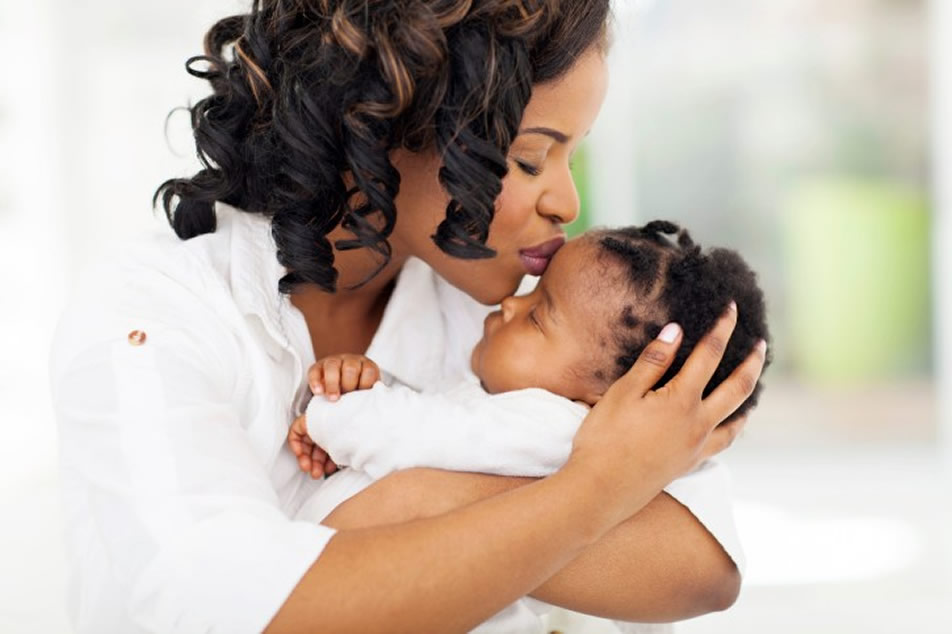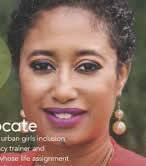News
Five Ways Mothers Can Instill Black Girl Magic

Naturally, when Mother’s Day approaches we begin to reminisce on the special moments we’ve shared with our mothers. As we reflect on the lessons, wisdom, and overwhelming love, one wonders what is truly special about a mother’s love for her daughters?
This delicate relationship has historically been one of the most complex and mystifying in society. It is interesting that expressing their appreciation for the deep and abiding love of mothers seems to come easy to men…you can witness it in the dulcet tributes like Sweet Sadie by the Spinners, Mama’s Song from Boyz II Men, or even Tupac’s Dear Mama. In fact, years ago while creating a Mother’s Day playlist for my own mother, I took notice that every song with an implicit thank you to mothers was in fact performed/written by men.
Hmmm….why is that? Furthermore, what would a love note to our mothers from Black daughters sound like? What would we express gratitude for?
In this society where Black women are collectively the metaphorical mules, attaining more education yet paid the lowest; nurturing babies for all yet facing high rates of mortality when birthing our own; shaping cultural influence yet symbolically annihilated; pushing political agendas yet systematically discounted…just how much of a superwoman do Black women have to be to raise healthy and liberated Black daughters?
In spite of all that, celebration of Black Girl Magic is at an all-time high…we are loving ourselves even if no one else dares. Nevertheless, we grapple with the facts revealed last year in Girlhood Interrupted: The Erasure of Black Girls’ Childhood a report authored by Jamilia Blake, Rebecca Epstein, and Thalia Gonzalez of the Center on Poverty and Inequality at the Georgetown Law Center. The report shows that as early as toddlers our girls are dehumanized, seen as criminal, and “adultified.” As mothers, we must grapple with the question of how do we prepare our girls for this world?
And, of course, there remains the old-age stigma that Black mothers raise our daughters but love our sons.
Could this be true? As the mother of a son and daughter, I am not one to give energy to the merit of that statement. Still, what I know for sure is that despite all the stats and reports, our very lived experiences are our tributes to our mothers. There is no Black Girl Magic without Black Mothers. But exactly what kind of mothering does it take to produce Black Girl Magic?
I put some thought to it and here are 5 key mommy factors I came up with:
- Protective– Everybody knows to beware of Mama lions when it comes to their babies. Our most natural instinct can be said to be our most vital. When we consider the barriers our daughters are born into, it takes a heightened sense of protection to advocate for and shield by any means necessary our daughters from harm be it structural, sexual, gender, emotional or environmental. We are the first line of defense for our daughters.
- Supportive– One of the most endearing qualities about Black mothers is their level of “ride or die” for their children. When it comes to our daughters, it is imperative that we demonstrate unconditional support. So much of our engagement has to surpass our internal criticism and judgements. The very tenuous thread in our relationship relies on our daughters knowing they can count on us to be a sounding board, safe harbor to come to when storms hit or when they feel like they just can’t find their way.
- Attentive– Pay attention to your daughters! Be cognizant of her gifts and the things that bring her delight. Be invested in her full development. Observe how she reacts to others. We can get caught up in our own dense lives, glued to our smart phones and devices. But our daughters need us to be present. They deserve to be seen by us. Get in tune with who she is. Don’t miss signals she is in danger or unhappy.
- Compassionate– As much as we may have hate to admit it in our late teens and early twenties, every little girl is mirroring her mother. Whether you all share similar physical features, she is definitely watching how you talk to others and how you treat people. How do you relate when angered? How do you treat homeless, less fortunate and marginalized persons? Do you volunteer and serve the community? Model being a good person so your daughter can see how it is done.
- Emotionally Fit– Perhaps the one truth we need to accept is that mothers are not perfect. After all, we had to come through our own girlhood as daughters before we had our own, right? Because we have lived life (or as our mothers often remind us), we were not born yesterday. There are emotional scars and baggage. When raising our daughters, we desperately need to be aware of our need to heal. More than that awareness is the intentional approach to our healing. Our own self care is vital because we absolutely cannot nurture our daughters if we are neglecting ourselves. We can love and nurture from our overflow, but not an empty cup.
Quite fitting, Jada Pinkett Smith just released a new series of Red Table Talks, a exploration of the dynamics of motherhood. Personally, I will say Jada demonstrates all the mommy factors from above and it shows in how liberated and well-adjusted her own daughter, Willow Smith, appears to be. The series is one I highly recommend as we contemplate the relationship of Black mothers and daughters. For all women raising Black Girl Magic gather your daughters and your own mothers to watch together. Not only that, I challenge us all to create our version of Red Table Talks with our families.
All in all, one thing is for certain: We may never become biological mothers, but we are always daughters. In that light, we will always need to know we are loved by our mothers. We are never too old. Yet more importantly, our daughters (all the girls of our village) are never too young to witness our growth. Be vulnerable for our daughters. Be strong for our daughters.
Be Love for our daughters.
La’Keisha Gray-Sewell is the Founder and Lead Facilitator of Girls Like Me, an urban advocacy organization. She is also a motivational speaker. For more information about Girls Like Me, visit www.girlslikemeproject.org.

-

 Featured11 months ago
Featured11 months agoCalifornia Is the First State to Create A Public Alert for Missing Black Youth
-

 Featured10 months ago
Featured10 months agoAfrican American Leaders Stay the Course Amid Calls for President Biden To Bow Out of Race
-

 Featured11 months ago
Featured11 months agoThe Debate Fallout Lands on Both Candidates
-

 Featured10 months ago
Featured10 months agoPresident Joe Biden Decides to Withdraw from the Presidential Race
-

 Featured10 months ago
Featured10 months agoPresident Joe Biden Describes Shooting of Donald Trump As ‘Sick’
-

 Featured10 months ago
Featured10 months agoIn One of His Final Speeches as President, Biden Says It’s Time for ‘Fresh Voices’









